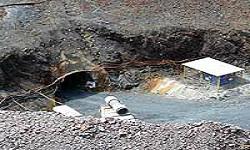Economic Geology & Geochemistry
Economic Geology and Geochemistry combines the study of geology of ore deposits and geochemistry to describe and understand the processes of mineral resource formation as well as to quantify the environmental impact of mineral and energy resource exploitation. Economic geology is concerned with earth materials that can be used for economic and/or industrial purposes. These materials include precious and base metals, nonmetallic minerals, construction-grade stone, petroleum minerals, coal, and water. Geochemistry is the study of the distribution of chemicals in the Earth and atmosphere. Geochemistry is the scientific discipline that deals with the relative abundance, distribution, and migration of the Earth’s chemical elements and their isotopes. It is broadly concerned with the application of chemistry to virtually all aspects of geology. Much geochemical research is devoted to the quantification of this extraction of mantle material and its contribution to crustal growth throughout geologic time in the many stages of seafloor formation and mountain building.
- Business of economic geology
- Mineral exploration design
- Organic and Inorganic Geochemistry
- Aqueous and Petroleum Geochemistry
Related Conference of Economic Geology & Geochemistry
Economic Geology & Geochemistry Conference Speakers
Recommended Sessions
- Archaeology
- Ecology & Environmental Engineering
- Economic Geology & Geochemistry
- Environmental Geology
- Environmental Sustainability
- Geology and Geophysics
- Geology in Civil Engineering
- Global Warming & Climate Change
- Groundwater Foundation & Hydrology
- Marine Geology & Oceanography
- Mining and Soil Exploration
- Natural Hazards & Disaster Management
- Oil and Gas Reservoir
- Paleontology & Paleo-anthropology
- Petroleum Geology
- Remote Sensing & GIS of Environment
- Sedimentology Geology & Stratigraphy
- Soil and Rock Mechanics
- Structural Geology
- Volcanology & Plate tectonics

